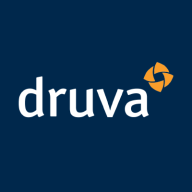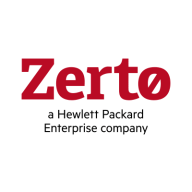

Zerto and Druva Phoenix are two major contenders in the data protection and disaster recovery arena. Druva Phoenix seems to have an edge in terms of pricing and ease of setup, while Zerto takes the lead with its comprehensive feature set that supports complex IT environments.
Features: Zerto provides continuous data protection and ease of disaster recovery for virtual environments, offering features like near-zero RPOs and hypervisor-based replication. It supports seamless integration with VMware and includes orchestration and automation capabilities for failover and failback. Druva Phoenix, on the other hand, is cloud-native with efficient backup and recovery, offering effective global deduplication and ease of integration with cloud infrastructure, providing simplicity in management and data retention.
Room for Improvement: Zerto could improve by reducing deployment complexity and enhancing its compatibility with more cloud platforms. Additionally, a more streamlined user interface could facilitate ease of management. Druva Phoenix can enhance its offering by expanding features to support broader hypervisor compatibility, and improving long-term data retention options. Better analytics and reporting capabilities could also be beneficial for users seeking more insights.
Ease of Deployment and Customer Service: Druva Phoenix's straightforward cloud-based deployment facilitates easy scaling and installation, with responsive customer service noted for resolving issues efficiently. Zerto’s deployment, while more intricate due to its robust capabilities, allows extensive support for complex IT operations. Zerto's comprehensive assistance can be advantageous despite the initial challenging setup.
Pricing and ROI: Druva Phoenix offers a cost-effective solution that is attractive for businesses seeking optimized resource usage and simplified operations. Zerto demands a higher upfront investment but justifies this through advanced disaster recovery functionalities critical for mission-critical scenarios. The decision between these solutions depends on whether cost-effectiveness or advanced functionalities are prioritized, with Zerto promising higher returns over time given its extensive feature set.


Druva Phoenix is a comprehensive cloud-based data protection and management solution that enables organizations to securely backup, recover, and manage their data across endpoints, physical servers, virtual machines, and cloud applications. With its scalable and flexible architecture, Druva Phoenix simplifies data protection and eliminates the need for traditional backup infrastructure.
By leveraging the power of the cloud, Druva Phoenix offers organizations a cost-effective and efficient way to protect their critical data. It provides automated backup and recovery capabilities, ensuring that data is always protected and easily recoverable in the event of a disaster or data loss. With its global deduplication and compression technology, Druva Phoenix minimizes storage requirements and reduces costs.
Druva Phoenix also offers advanced features such as point-in-time recovery, allowing organizations to restore data to a specific point in time, and granular file-level recovery, enabling users to recover individual files or folders. Its intuitive web-based console provides a centralized view of all protected data, making it easy to manage and monitor backups across the entire organization.
In addition to data protection, Druva Phoenix offers comprehensive data management capabilities. It enables organizations to gain insights into their data through advanced analytics and reporting, helping them make informed decisions and optimize their storage resources. Druva Phoenix also supports legal and compliance requirements by providing eDiscovery capabilities and ensuring data is retained and disposed of according to regulatory guidelines.
With its cloud-native architecture, Druva Phoenix offers organizations the flexibility to protect and manage their data across a wide range of environments, including on-premises, remote offices, and cloud applications such as Microsoft 365 and Google Workspace. It seamlessly integrates with popular cloud platforms like AWS and Azure, allowing organizations to leverage their existing cloud investments.
Zerto is used for disaster recovery, business continuity, data migration, and ransomware recovery, providing continuous data protection and near real-time replication. Valued for ease of use, efficient failover processes, and versatile integration, it enhances organizational efficiency, reduces errors, and boosts productivity.
We monitor all Disaster Recovery (DR) Software reviews to prevent fraudulent reviews and keep review quality high. We do not post reviews by company employees or direct competitors. We validate each review for authenticity via cross-reference with LinkedIn, and personal follow-up with the reviewer when necessary.